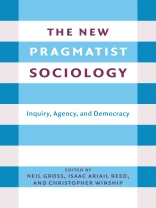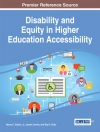Pragmatist thought is central to sociology. However, sociologists typically encounter pragmatism indirectly, as a philosophy of science or as an influence on canonical social scientists, rather than as a vital source of theory, research questions, and methodological reflection in sociology today.
In The New Pragmatist Sociology, Neil Gross, Isaac Ariail Reed, and Christopher Winship assemble a range of sociologists to address essential ideas in the field and their historical and theoretical connection to classical pragmatism. The book examines questions of methodology, social interaction, and politics across the broad themes of inquiry, agency, and democracy. Essays engage widely and deeply with topics that motivate both pragmatist philosophy and sociology, including rationality, speech, truth, expertise, and methodological pluralism.
Contributors include Natalie Aviles, Karida Brown, Daniel Cefaï, Mazen Elfakhani, Luis Flores, Daniel Huebner, Cayce C. Hughes, Paul Lichterman, John Levi Martin, Ann Mische, Vontrese D. Pamphile, Jeffrey N. Parker, Susan Sibley, Daniel Silver, Mario Small, Iddo Tavory, Stefan Timmermans, Luna White, and Joshua Whitford.
Inhoudsopgave
Introduction
1. Pragmatist Sociology: Histories and Possibilities, by Isaac Ariail Reed, Neil Gross, and Christopher Winship
Part I: Inquiry
2. What Sociologists Should Get Out of Pragmatism, by John Levi Martin
3. Self-Reflection and Social Responsibility in Research: Lessons from Early Pragmatist Historical Investigations, by Daniel Huebner
4. Problem Situation Misassessment and the Financial Crisis, by Luis Flores and Neil Gross
5. Pragmatism, Aesthetics, and Sociology, by Daniel Silver
6. Disambiguating Dewey; or Why Pragmatist Action Theory Neither Needs Nor Asks Paradigmatic Privilege, by Josh Whitford
Part II: Agency
7. Problem-Solving in Action: A Peirceian Account, by Iddo Tavory and Stefan Timmermans
8. Projective and Responsive Creativity Among On-Demand Workers, by Mazen Elfakhani
9. Words Versus Actions in the Network Behavior of Low-Income African Americans, by Mario Small, Cayce C. Hughes, Vontrese D. Pamphile, and Jeffrey N. Parker
10. Scientific Innovation as Environed Social Learning, by Natalie B. Aviles
11. Why Do Biologists and Chemists Do Safety Differently? The Reproduction of Cultural Variation Through Pragmatic Regulation, by Susan Silbey
Part III: Democracy
12. Accidental Discovery and the Pragmatist Theory of Action: The Emergence of a Boston Police and Black Ministers Partnership, by Christopher Winship
13. Pragmatist Comparative-Historical Sociology, by Isaac Ariail Reed and Paul Lichterman
14. American Pragmatism and the Dilemma of the Negro, by Karida L. Brown and Luna Vincent
15. The Public Arena: A Pragmatist Concept of the Public Sphere, by Daniel Cefaï
16. Finding the Future in Pragmatist Thought: Imagination, Teleologies, and Public Deliberation, by Ann Mische
Index
Over de auteur
Neil Gross is the Charles A. Dana Professor of Sociology at Colby College. He is the author of Why Are Professors Liberal and Why Do Conservatives Care? (2013) and Richard Rorty: The Making of an American Philosopher (2008).Isaac Ariail Reed is professor of sociology at the University of Virginia. He is the author of Power in Modernity: Agency Relations and the Creative Destruction of the King’s Two Bodies (2020) and Interpretation and Social Knowledge: On the Use of Theory in the Human Sciences (2011).Christopher Winship is Diker-Tishman Professor of Sociology at Harvard University and a senior faculty member at the Harvard Kennedy School of Government. He is coauthor of Counterfactuals and Causal Inference: Methods and Principles for Social Research (second edition, 2014).












